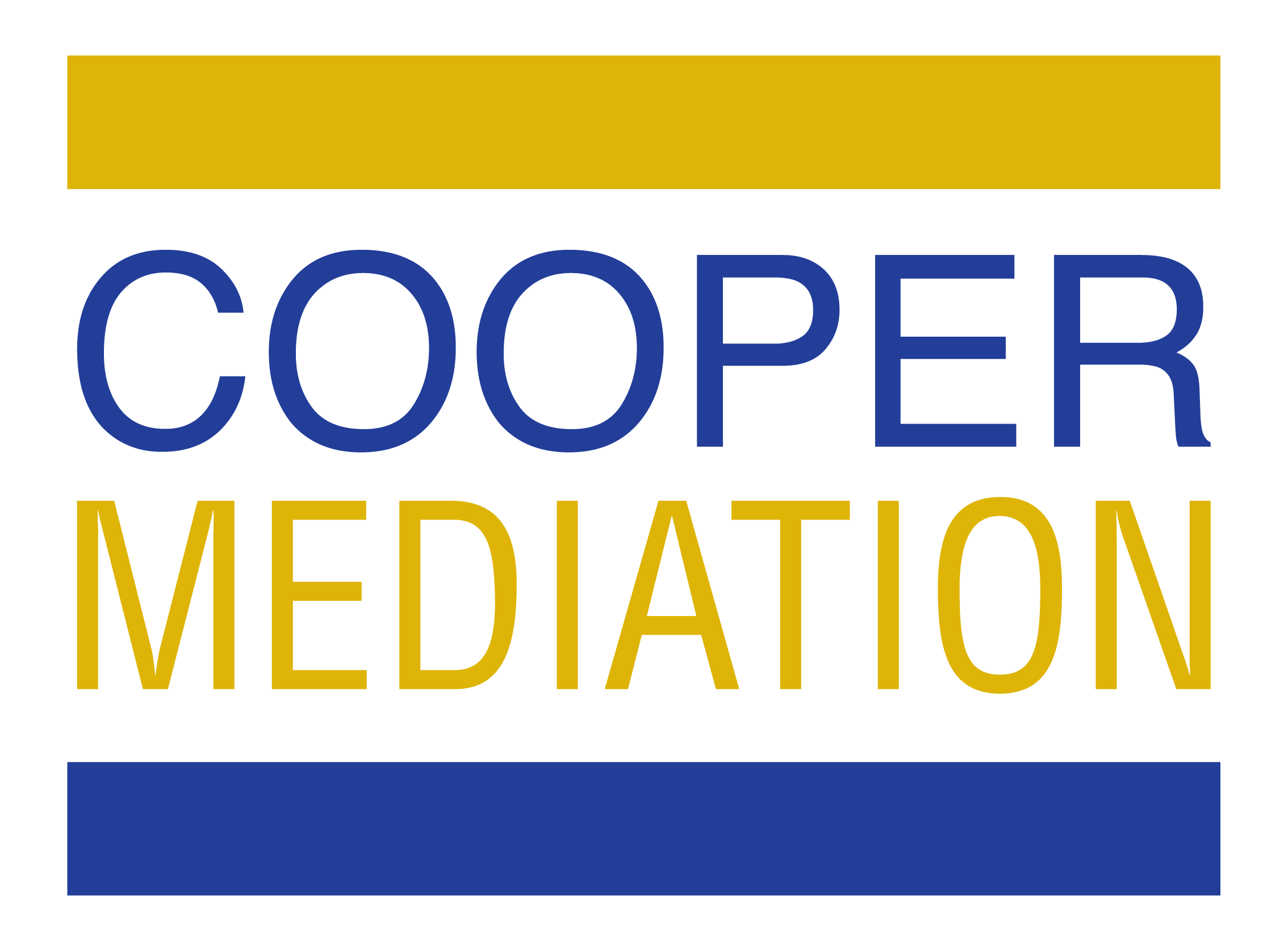
25 Jan Pre-Mediation Conferences
Benjamin Franklin said, “If you fail to plan, you are planning to fail”. I suggest that the judicious use of a pre-mediation conference (“PMC”) can help all those involved in an upcoming mediation to maximize the prospects for productive, effective and efficient discussions and the potential for resolution.
At the outset, I must confess that I have used a PMC sporadically and on an ad hoc basis. As counsel, I might contact the mediator to give them a “head’s up” in relation to a potentially difficult issue, person or dynamic. As a mediator, I have suggested a PMC when I’m involved in multi-party mediations or for cases that seem to have an added level of complexity or difficulty. That said, I cannot imagine any matter to be mediated that would not benefit from a PMC.
A PMC can be arranged at the request of the mediator or at the request of one or more of the parties. There is nothing inappropriate about private communications between counsel for one or more of the parties and the mediator. I make it very clear that I view these forms of communication as a form of caucus discussions. My mediation agreement is very explicit in noting that I treat all communications in caucus as confidential; As a result, all discussions in a PMC are similarly confidential.
If counsel for one of the parties believes there is a particular issue which needs to be raised in advance of the mediation, counsel should not hesitate to contact their mediator in this regard. The mediator may suggest a PMC of all counsel or may conduct a series of communications between the mediator and counsel.
A PMC should probably take place no later than the day before the mediation (though this would certainly fall into the last-minute category) and no sooner than 30 days in advance of the mediation. However, there are also opportunities for what I would describe as a long-range PMC. Please review my blog on case managed mediation which is a form of a PMC.
While the following list is not exhaustive, it serves to demonstrate a variety of circumstances where a PMC may be helpful.
1 – A non-party is planning to attend the mediation. This may be a friend or trusted advisor. In some cases, it may be an expert. This PMC allows the mediator to anticipate and plan for this person’s attendance and obtain consent/approval from other parties to the extent required.
2 – A party who is expected to attend the mediation will not be attending. This allows the mediator to ensure that the missing party will be available in some fashion to provide instruction to counsel or has already provided instruction to counsel. Consideration can be given to rescheduling the mediation if the missing party is essential to the process.
3 – An attendee at mediation is expected to need an opportunity to vent – the proverbial “day in court”. More often than not, this may be the plaintiff in a personal injury matter or a matter of some sensitivity. A PMC allows the mediator to anticipate this need and run interference, to the extent necessary, with other parties at the mediation.With advance notice, the mediator can organize a platform to give opportunity to those who would like to vent without it affecting the tone of an opening group discussion.
4 – Counsel expects their client to have unreasonable opinions on a particular issue or on settlement value. This circumstance can apply to all who participate in a personal injury or insurance mediation. These opinions can be analysed and discussed at mediation. The mediator can provide valuable input and assistance. Most importantly, the mediation can be managed so that it does not put the parties and their lawyers further from, rather than closer to, resolution when they arrived at the beginning of the mediation. This might be described as an application of the Hippocratic oath to which mediators should subscribe – do no harm.
5 – A party has personal or professional concerns which impact upon the mediation process and the need for resolution. From the plaintiff’s perspective, this could be health issues or financial concerns. From the defence perspective, this could be reputational considerations on the part of the named defendant or concern regarding claims over insurance limits, etc.
6- The plaintiff needs or would benefit from an apology. This is a frequently overlooked need or interest at mediation. It costs nothing for defence counsel or the insurance representative to express a heartfelt and sincere apology in the appropriate case.
7 – Logistical concerns – in the good old days (prior to COVID-19 and the worldwide pandemic), information regarding the number of people attending the mediation, travel considerations, language barriers and the need for interpreters, dietary needs and restrictions were all important. Currently, almost all mediations are taking place remotely; Zoom is the preferred platform. If an attendee has special needs or limitations, these should be discussed in advance with the mediator. For example, high-speed Internet is not universally available. Some clients do not wish to activate their video and others are apparently not authorized to do so by their employers. These issues should be addressed in advance of the mediation to eliminate any last-minute surprises or challenges.
8 – The need for opening statements and/or their duration and/or content – this topic is probably deserving of one or more blogs or papers. I have addressed it on a number of occasions in the past. That said, there is good reason to discuss these topics with your mediator in advance of the mediation. At minimum, if you are planning a PowerPoint presentation or planning to utilize the screen share function on Zoom, you should make sure that the mediator has this feature activated for the mediation. In the early days of Zoom, there were some security concerns in this regard but they have been largely eliminated or minimized.
9 – Review of previous settlement offers or settlement discussions – this is absolutely invaluable information to a mediator. Mediation memoranda paint starkly different pictures; the same is true for opening remarks. I have been surprised in more than a few cases to learn that the apparent settlement landscape is one thing, while the actual settlement landscape, undisclosed until my first caucus visit after the mediation has begun, is very different.
10 – A PMC can provide opportunities for problem-solving and brainstorming. It can also provide an opportunity for an informed mediator to make one or more homework assignments to counsel and/or their clients to improve preparation and readiness for mediation.
11 – A particularly anxious, nervous or curious client may benefit from a PMC involving the client and their lawyer and the mediator. Most mediators will tailor their opening remarks to participants who have the least experience with mediations. In a personal injury or insurance matter, this is usually the plaintiff. There is no reason to wait until the start of the mediation itself to provide this sort of briefing to a client. It will undoubtedly help them sleep the night before the mediation, possibly eliminate “visions of sugarplum fairies dancing in their head” and help them anticipate, process and manage information over the course of the mediation.
12 – Late breaking evidence – I have addressed this topic from a number of perspectives in the past. For these purposes, it is sufficient to note that late expert reports or surveillance and investigation reports can seriously derail a mediation. These sorts of considerations can be canvassed with the mediator and the mediator can assist in managing expectations and disappointment with others.
13 – Competing claims from multiple plaintiffs, typically represented separately, against a finite fund (usually an insurance limit). In this case, it is critical for there to be an agreement for memoranda regarding each and every plaintiff to be shared amongst all counsel for all parties. This allows all counsel to fully participate in the evaluation process and what is typically an exercise in prorating the insurance available to satisfy multiple claims.
14 – Global mediations involving one plaintiff making claims against multiple defendants or insurers. It is important to establish ground rules regarding the sharing of mediation memoranda, reports of experts, surveillance and investigation, etc. It is also very helpful to discuss the design of settlement offers, particular when one insurer’s exposure may be dependent on the extent to which another insurer makes offers.
15 – Claims against multiple defendants where liability amongst the defendants may be particularly contentious. One typical example is a slip and fall accident in the winter. There are typically multiple defendants including the owner of the premises, property managers, winter maintenance contractors and the like.
Pre-mediation conferences, like the Holiday Inn hotel chain, are far from luxurious but both offer predictability and comfort. In 1975, the chain’s corporate executives chose “the best surprise is no surprise” as their slogan, and it works just as well for mediation. If you ask for or participate in pre-mediation conferences, you will minimize surprises at mediation and maximize your prospects for successful discussions, negotiations and resolution.
ABOUT THE AUTHOR
 Vance Cooper is principal of Cooper Mediation Inc. Vance devotes 100% of his professional time to mediating and arbitrating primarily personal injury and insurance cases. He serves as an arbitrator in loss transfer and priority disputes under the Insurance Act. Vance is a Distinguished Fellow of the International Academy of Mediators, a Chartered Mediator of the ADR Institute of Canada and a Certified Mediator by the International Mediation Institute. He was also recently inducted to the Ontario Chapter of the Canadian Academy of Distinguished Neutrals (CADN).
Vance Cooper is principal of Cooper Mediation Inc. Vance devotes 100% of his professional time to mediating and arbitrating primarily personal injury and insurance cases. He serves as an arbitrator in loss transfer and priority disputes under the Insurance Act. Vance is a Distinguished Fellow of the International Academy of Mediators, a Chartered Mediator of the ADR Institute of Canada and a Certified Mediator by the International Mediation Institute. He was also recently inducted to the Ontario Chapter of the Canadian Academy of Distinguished Neutrals (CADN).
Vance can be reached at vance@coopermediation.ca or (647) 777-4011.
To schedule a mediation with Vance, visit: https://coopermediation.ca/vances-online-calendar/.
